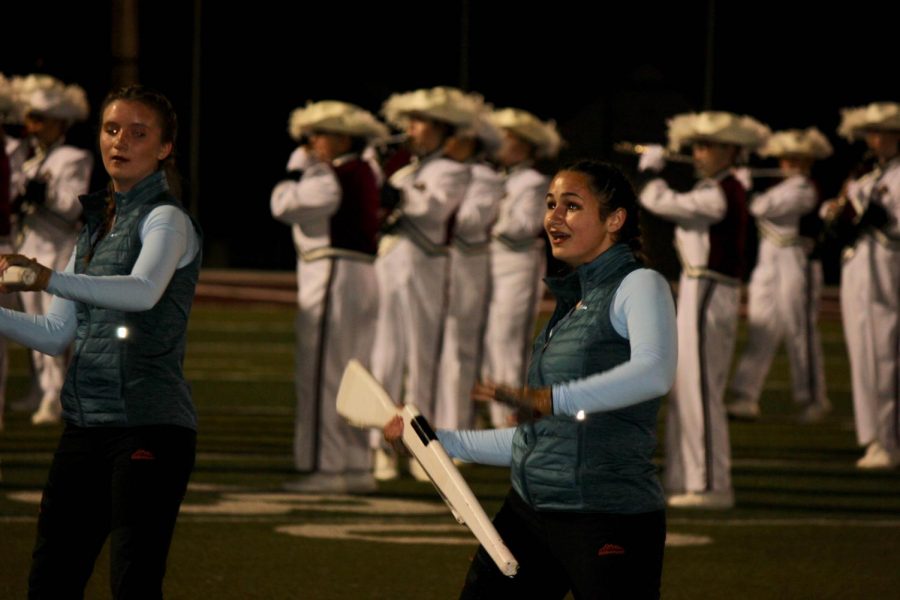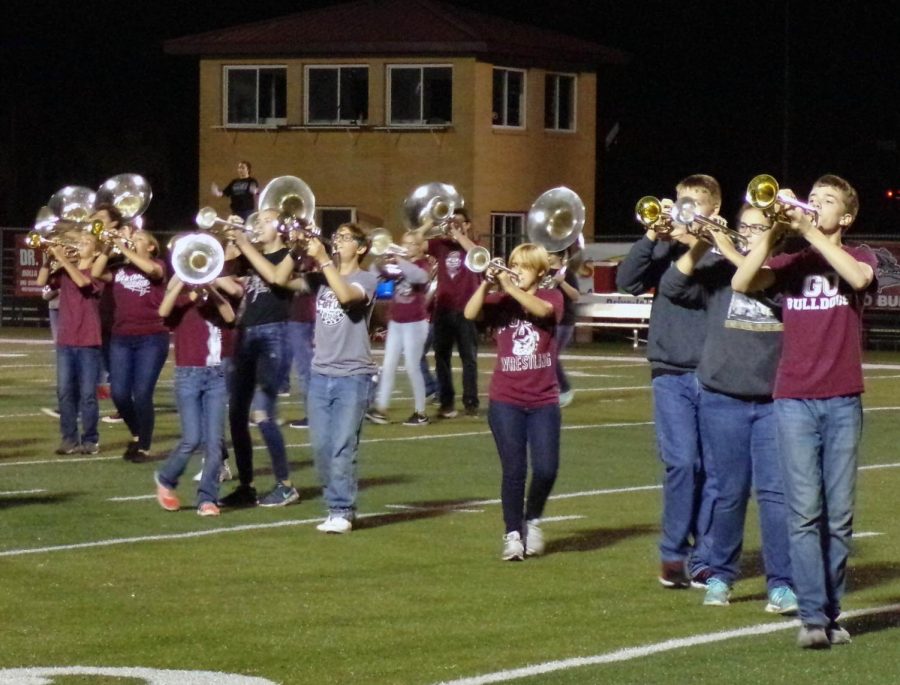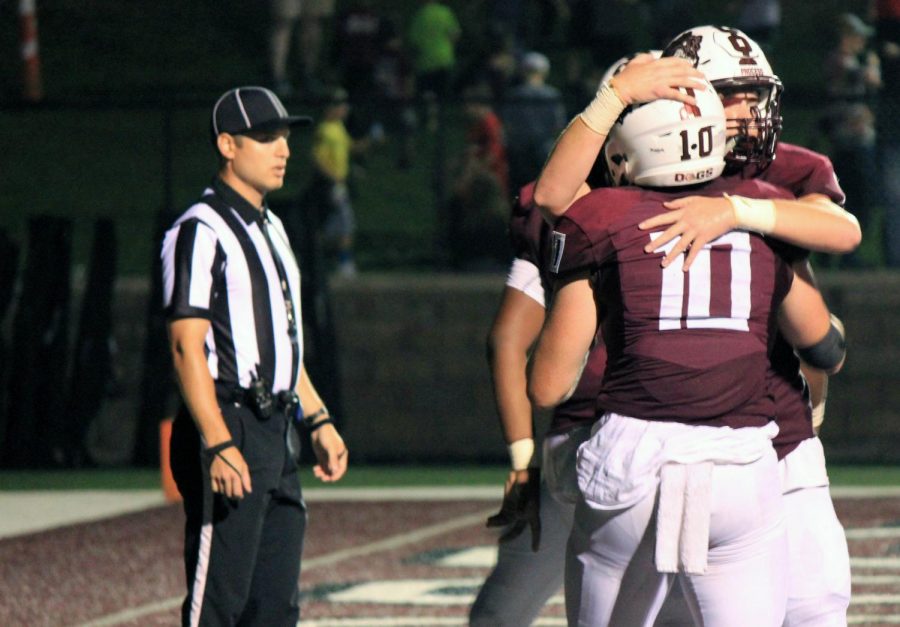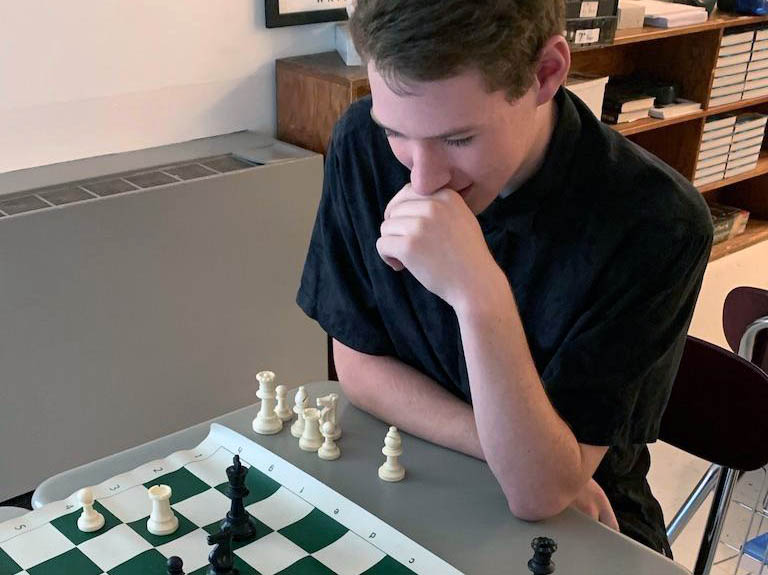Rahel Pommerenke; Belgium
Belgium is a relatively small country located between Germany and France, leading to it possessing the languages of these countries as its two primary languages. This leads creates a very diverse culture, making it perfect for foreign exchange student Rahel Pommerenke, who is working on learning French as her third language while residing there.
“Belgium is a country of many different cultures. There are many immigrant families here from countries such as Turkey, Syria, Georgie, Iraq, Algeria, Tunisia, Egypt, and other countries located in Africa and the Middle East. The reasons for their immigration vary from escaping conflict such as wars to looking.” Junior Rahel Pommerenke said.
In Belgium, Pommerenke attends Saint Michael a Gosselie, Gosselie being the town that she resides in. It is an open school, meaning that the students can take a walk in a park that is part of school grounds during lunch.
“In the US, the students can chose most of their classes. In Belgium, they chose two main courses which they follow the entire year for the three semesters. My options are Social Sciences, which is a mix between AP European History, sociology, and psychology, and languages, which includes Dutch , English, and French. Because I am here to learn French, the prefet, or counselor, organized for me to take another French class with one of the primier classes. It cuts into some of my core classes, but I have to make it my priority. The teachers here do not have fixed classrooms. They shuffle along with the students to different locations pretty much every hour.” Pommerenke said.
In Belgium, the different class structure also affects the way a school day is planned out.
“After the first three hours of the day, there is a 15 minute break in which there is time to buy a sandwich from the cafeteria or a snack from the vending machines. I don’t have the same classes everyday. My school days end at different times. ” Pommerenke said.
School in Belgium is also different because of a higher level of etiquette that is expected of the students.
“There is a strict anti-phone rule on school grounds. If an “educateur” sees it, they have the right to take it away. It can get you into a lot of trouble. You greet people with a kiss on the cheek as well as a salut/bonjour. It is rude not to acknowledge someone’s presence and can easily lead to miscommunications. When a teacher enters the classroom, the students stand up and wait for him or her to tell them to sit down.” Pommerenke said.
Other differences in the school system come in the form of substitute teachers and the restrooms.
“When a teacher is absent, the students go to the Étude, or study hall, where they remain until their next class. Substitute teachers are not very common. The bathrooms are unisex and they use toilet paper for drying of the hands. ” Pommerenke said.
Although Belgium school systems are much more formal, outside of school, strangers socialize much more openly and freely than in the United States.
“A couple of weeks ago, I accidentally spilled my coffee on the lady sitting next to me on the train. After cleaning the spill up and apologizing, she asked me about the exchange program, and we had soon moved on to discuss the political system of the United States. Strangers aren’t afraid of skipping the small talk and moving on to deeper discussions. Many Belgians feel that if they have an opinion about something, it should be expressed. Often in the United States, I feel like the people think that there is a time and a place for such discussions. That barrier can not be found here so often.” Pommerenke said.
Some small pleasures in Belgium can be found in the food, which the country is known for.
“Belgium is known for it’s specialties, which include the Belgian chocolate, the fries and the mayonnaise. Calling the fries french fries is a common misconception. They originated in Belgium, and are not like the thin greasy fries that you can find at McDonalds. When purchasing the fries, you can choose between a large amount of sauces. My favorite is the andelose, which is more on the spicy side.” Pommerenke said.
Emily Cates; Japan
To Americans, a stereotypical Japan is filled with Anime, crazy electronics and eye catching couture. In foreign exchange student Emily Cates’ experience, these stereotypes are kind of true.
“I love school, it’s really fun, and there’s honestly just too much to tell. Japan is crazy, I love it here so much. It’s honestly just like it is in the movies; everything’s animated and technologically advanced.” Junior Emily Cates said.
In Japan, everything has a technological twist and going out to eat can be an experience.
“With just everyday life stuff, you have America, and then ten times that, there’s Japan. From the computerized toilets to the way of ordering food in a restaurant. There are these special sushi restaurants where there’s a computer at every table and your food is sent to you on a conveyor belt. I live in Osaka, not Tokyo, and I heard its crazy up there with tons of robots and stuff.” Cates said.
Do you want to eat at home but still have that Japanese excitement? No fear, even the microwaves are amped up.
“I don’t know how it happens, I guess the microwave just senses what’s inside and what it is, but all you do is press a button, and the microwave just stops when it senses it’s done.You don’t put in how long, it figures it out and the food or drink or whatever is always the perfect temperature when it’s done, so no annoying hot in the middle cold on the outside crap. The food is amazing, I love it. Admittedly, I’ve eaten some weird things like raw octopus, squid etc. and they also eat raw eggs here. It’s normal and not that bad actually.” Cates said.
While the technology is overdone and entertaining, the fashion is a bit more diverse, ranging from crazy, to something you’d see in an episode of Full House, to the same as popular American fashions all with a propensity towards oversized clothing.
Cates’ school days start with her alarm going off at 6:00, and leaving her home at 7:20.
“It takes an hour of walking, bus riding and train riding to get to school. School starts at 8:35 and the gate closes at 8:30. Some days we have six classes some days seven, so depending on the day I get out at 3:30 or 4:30. We have almost fifteen minutes between each class, and 45 or so minutes for lunch. After school I sometimes got to clubs ( basketball, soccer, kendo) and then head home or do something with friends.” Cates said.
In school, each student also has their own pair of school slippers. There are no street shoes allowed in the school so students store their street shoes in shoe lockers during the day. Schools also differ in the way that they handle discipline, and diet.
“Well, first off, kids sleep in class here all the time. Whether they sit right in front with teacher or in the back of the room, if they’re tired then they go to sleep. They don’t even try to hide it they full out just pass out on their desks. The teachers don’t care, they just keep on teaching, only certain teachers won’t let kids sleep. Actually, it’s really nice.
Obviously we have uniforms, public schools here have uniforms. Also, here the teachers go to each different class and the kids stay in the same room except for a few classes.
The school food is actually good here, however I normally bring a bento lunch but kids do, it’s a special lunch box thing in Japan. They have a huge thing of ice cream with a ton of different stuff to choose from, and the vending machines range from ice coffee to Pepsi.” Cates said.
Even with all of the fashion, food, and electronics Japan has to offer, Cates’ favorite thing about Japan is the hospitality of its people.
“Saying they’re nice is an understatement. You don’t just get told directions, they take you where you want to go. You never have to worry about having a grumpy waiter or a rude store clerk; you are always treated like you are the most important person at that moment, and that the person who’s helping you is having the best day ever. Not only that, but the students at my school, just everybody, they’re all so kind to me and to each other. It’s really nice.” Cates said.








